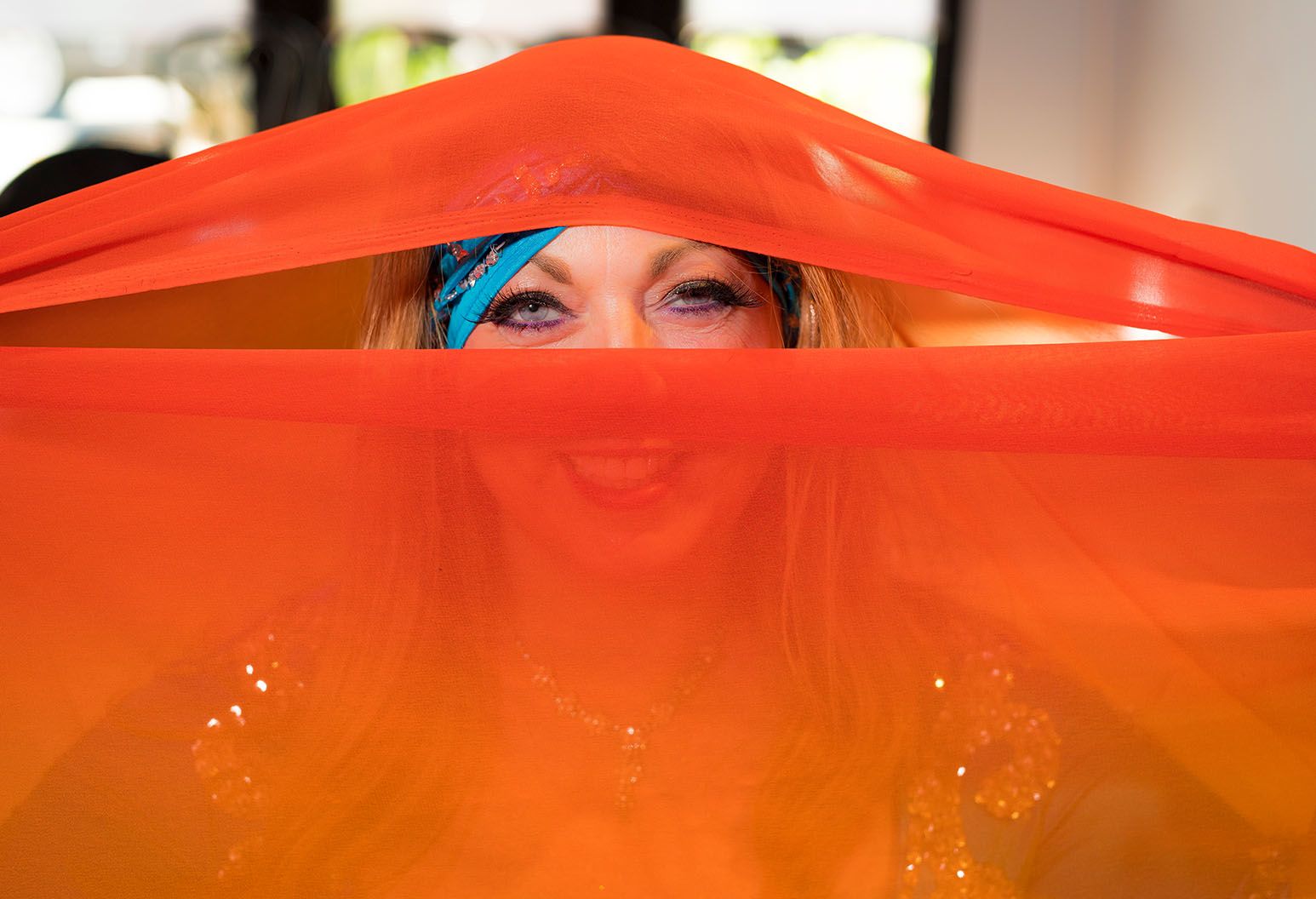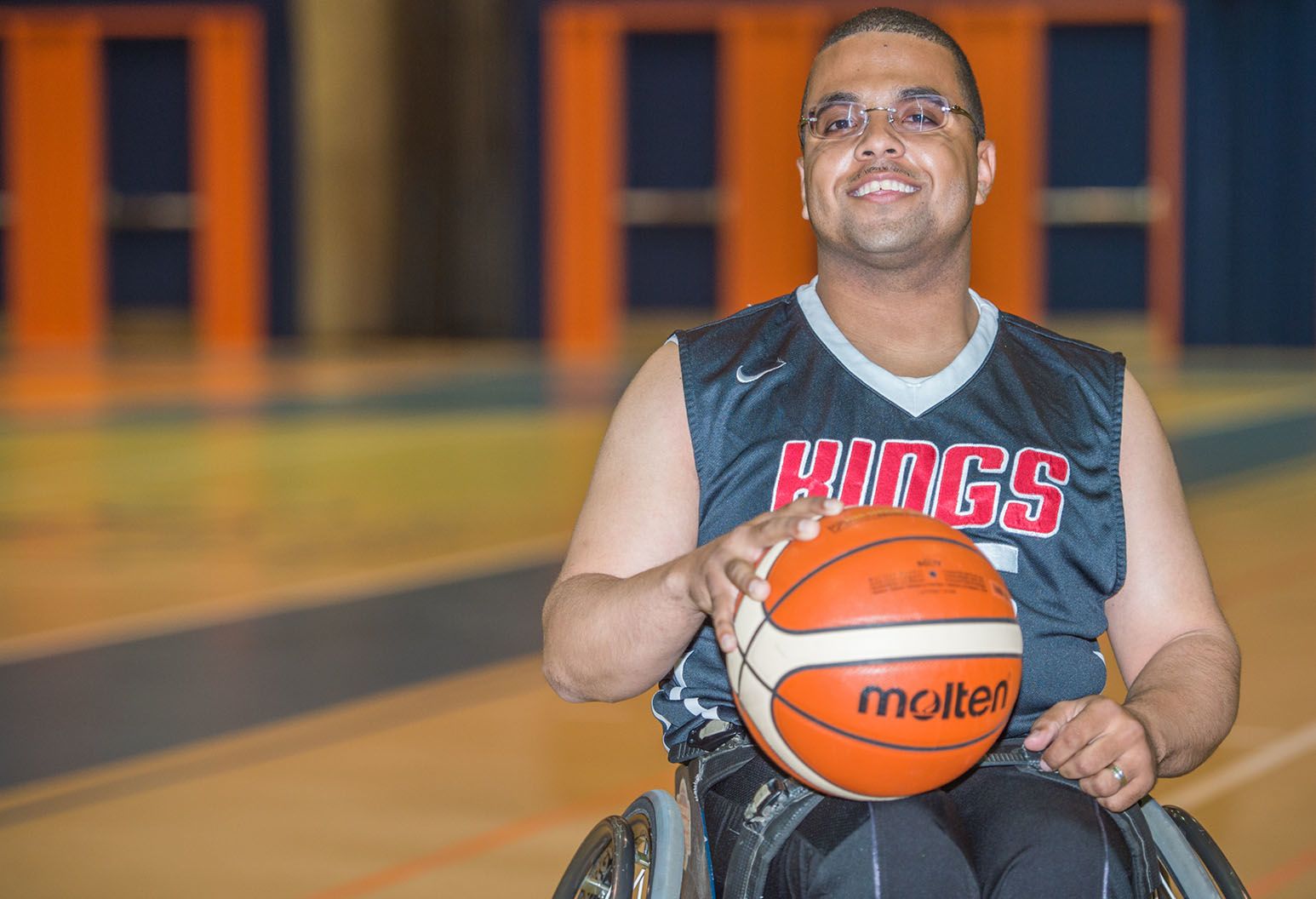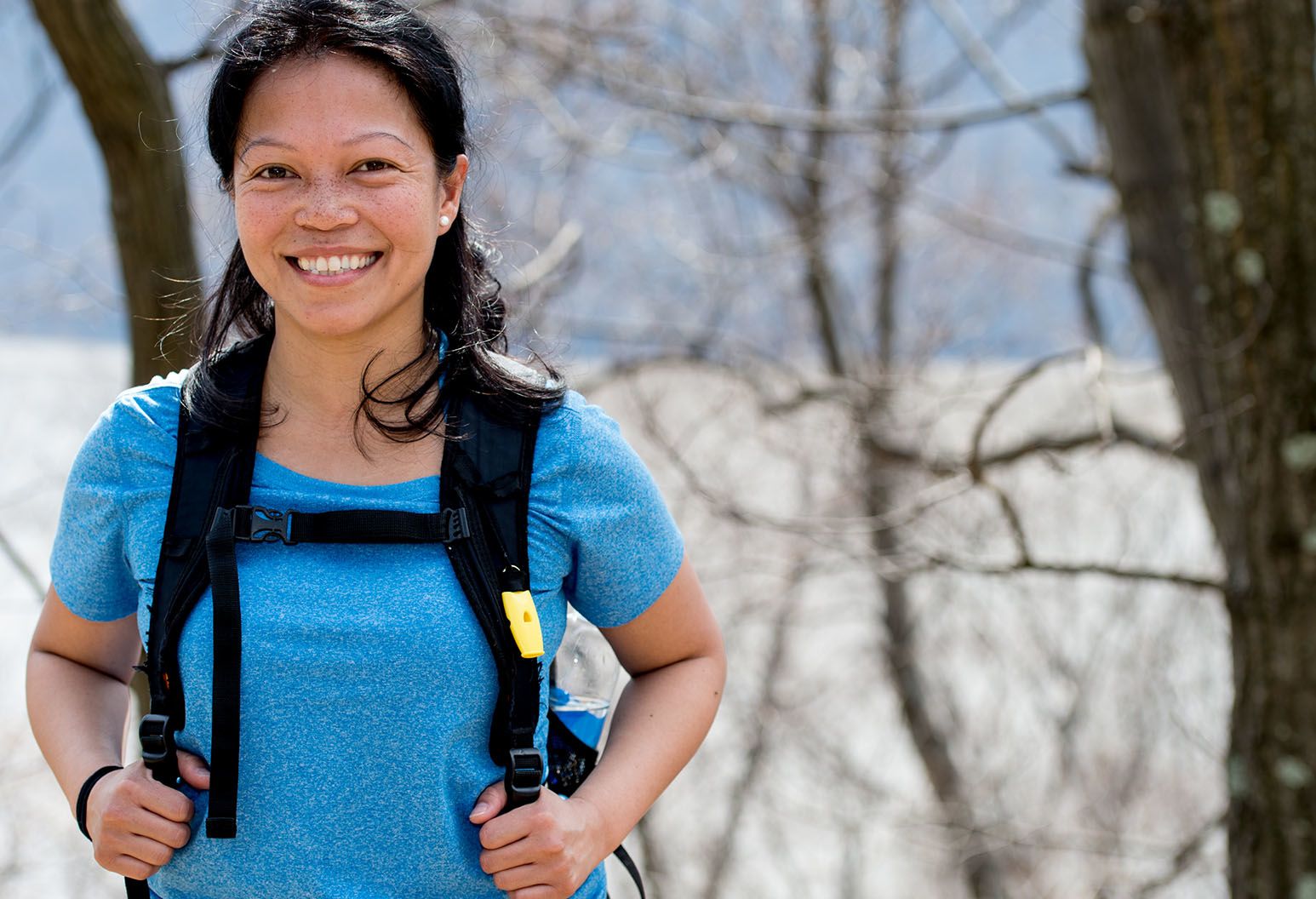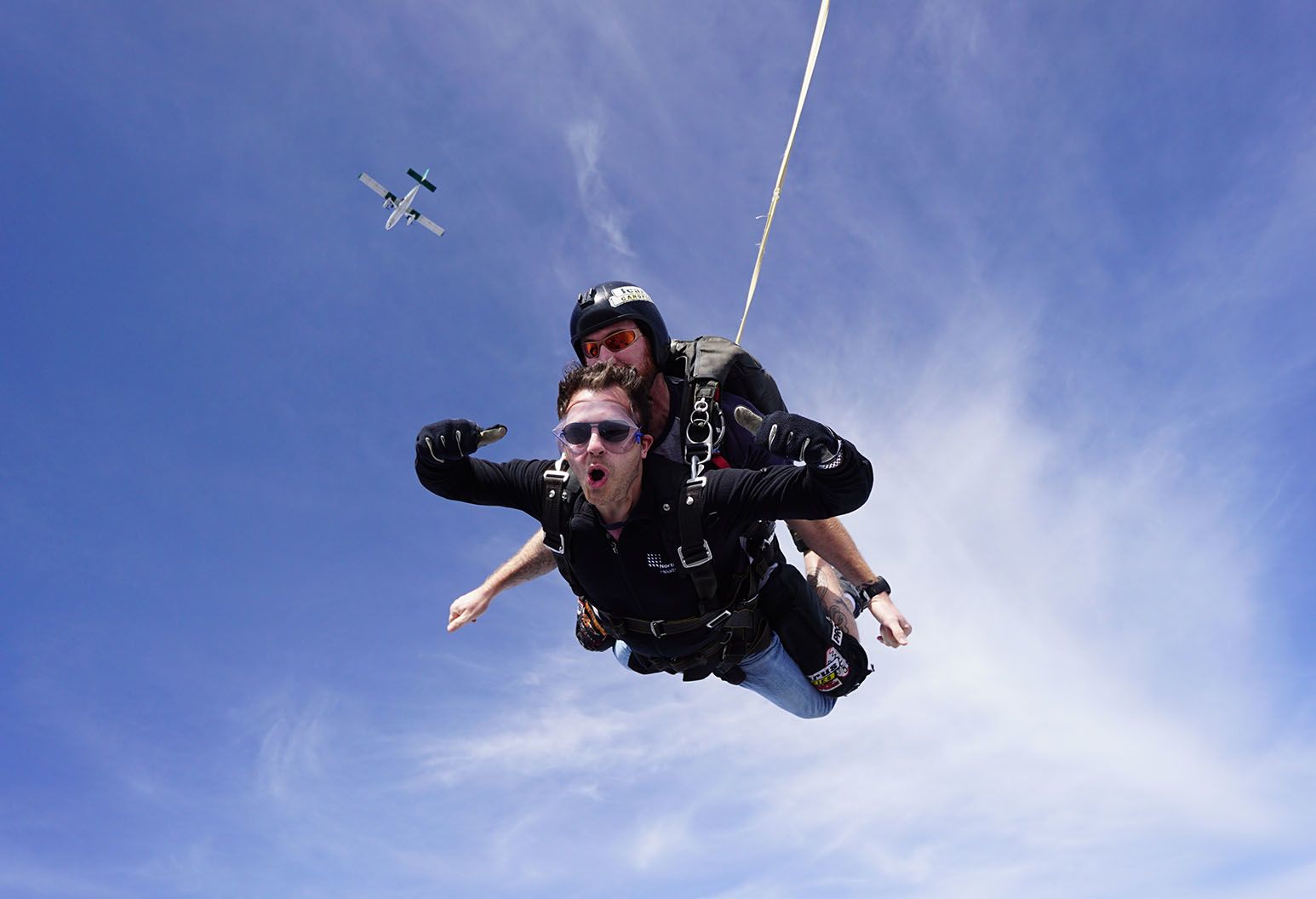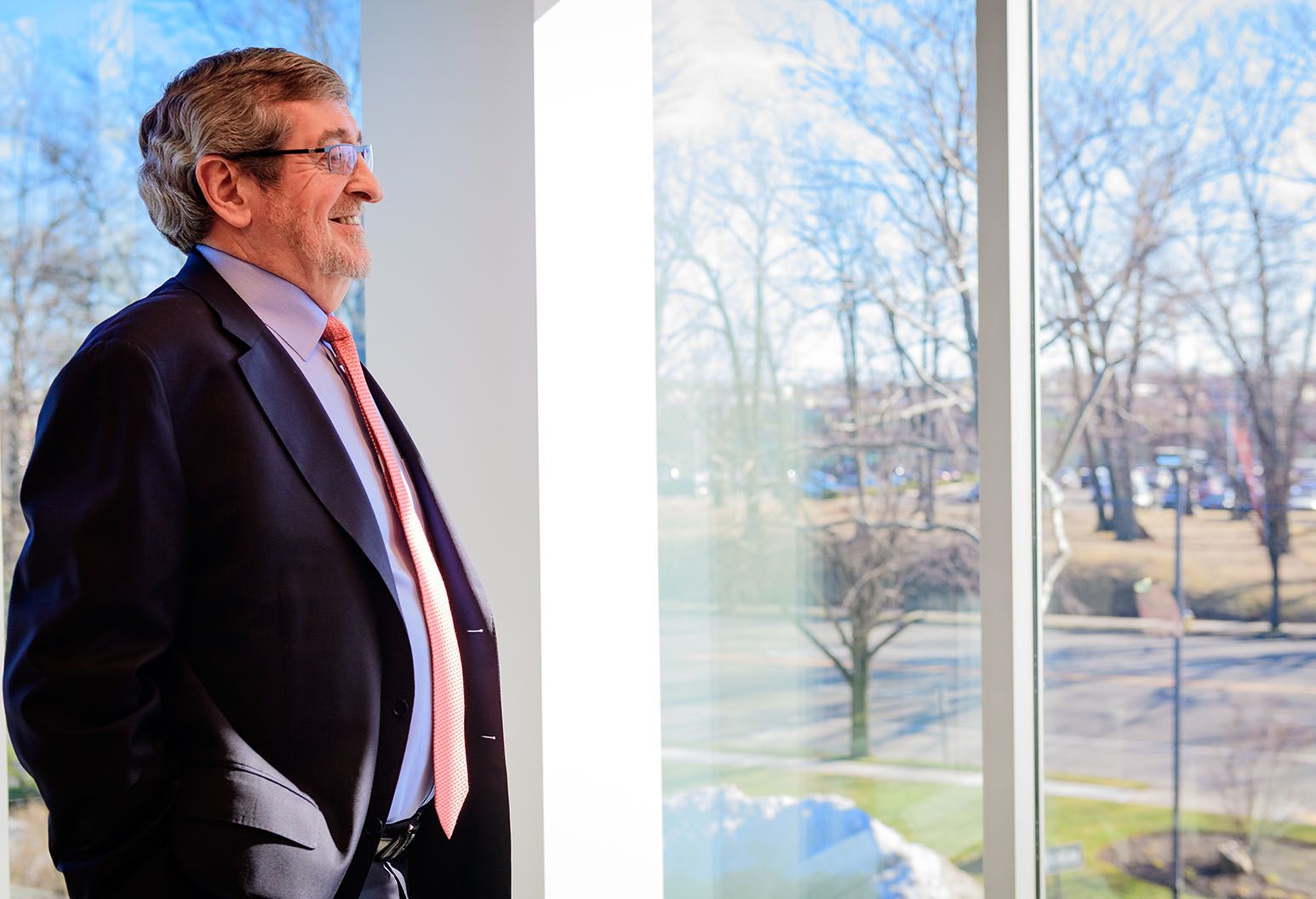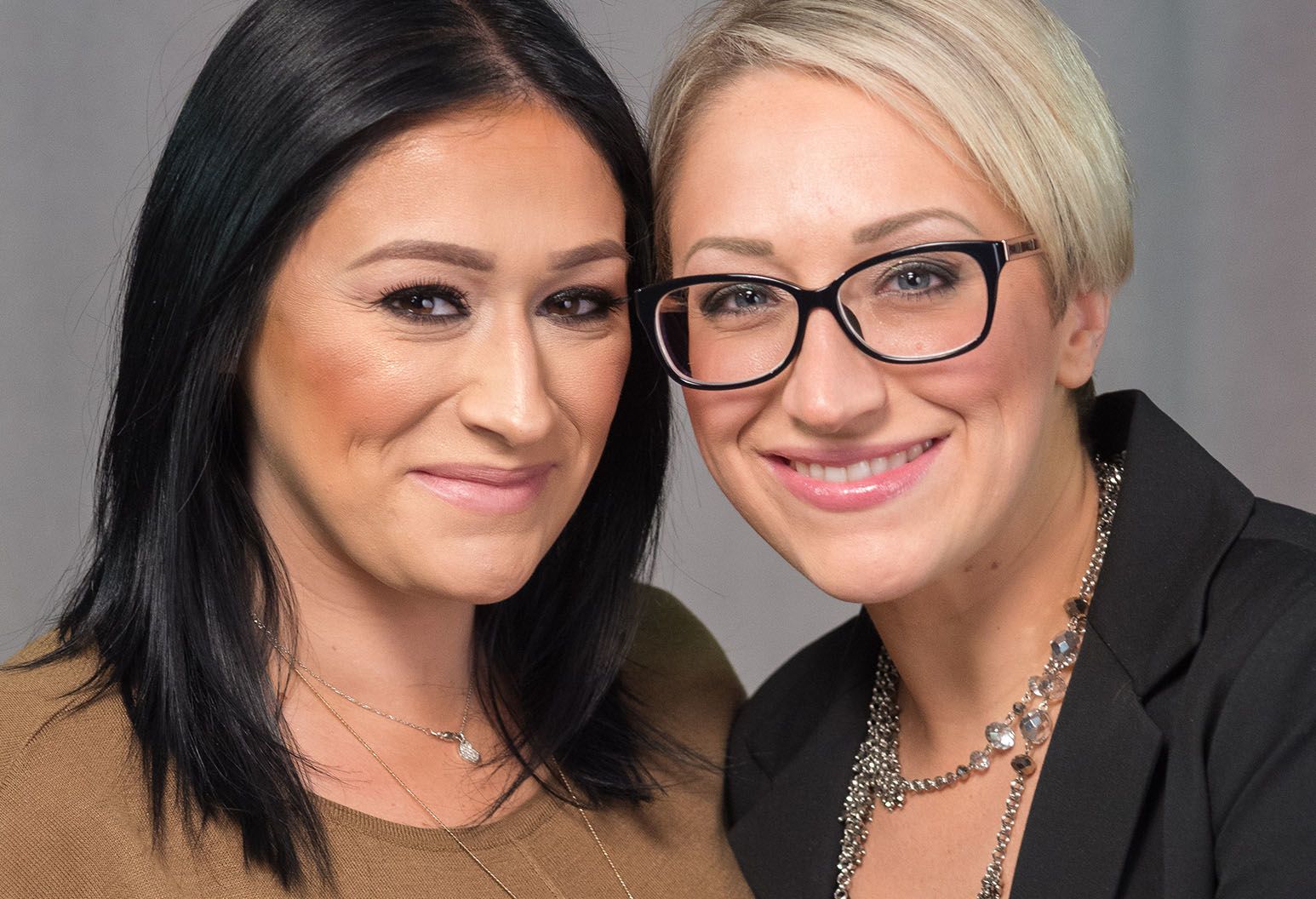One in 61,000
Arlene is one in 61,000
By Lauren Urban, Writer
During the week, Arlene Butterklee treats patients as a radiation therapist at the Center for Advanced Medicine (CFAM), a role she’s held for more than 20 years. But on weekends, she pours her energies into a unique hobby – breeding, training and showing her beloved Chinese Crested dogs.
“It all started when I was a little kid, and I went to the movies to see ‘101 Dalmatians,’” Arlene recalls. “I came home and I said to my mother, ‘I want a show dog.’ And she said to me, ‘When you get older and get a job, you can buy all the show dogs you want.’"
And that’s exactly what Arlene did.
She discovered and fell in love with Chinese Crested dogs as a teenager and spent a year trying to track down the rare, pint-sized breed. (There are only a few hundred in the nation.) Finally, she had her first two shipped to her. With the help of a trainer, Arlene began training her dogs right away and then entered her first competition.
“I just signed up one day,” she said. “I was a kid, and I didn't know what I was doing. I just went in the ring and showed my dog, and that was it.”
That was almost 40 years ago. Since that time, Arlene has bred eight consecutive generations of champion dogs. She treats it as a kind of science.
“I spent a long time studying the structure of Chinese Crested dogs. Every breed of dog has a written standard of perfection, which dictates things like the perfect head, eye, top line and even rear end,” she said. “Also, before I breed a dog, I do DNA testing to make sure they don't have any genetic defects. Dog breeding has greatly improved over the years, as far as being able to produce healthier animals.”
With each new litter, Arlene keeps one puppy she thinks will be the best show dog and trains it in obedience, agility and confirmation handling (e.g., walking on a leash and standing still on the judges’ table), a process that takes about six months. Once they’re ready, they compete almost every weekend. Arlene tries to personally attend at least one small show a month, limiting the distance to an eight-hour drive. Other times, she sends her dogs with friends or handlers in her place. Arlene also flies to six bigger specialty shows a year. She goes to Texas, Florida, Tennessee and Delaware annually, and she’s also been to Washington, Nevada, Michigan and California. While Arlene didn’t attend, her dogs have also competed internationally in France, Italy, Poland and Canada.
The only prize for winning these competitions is points; they’re recorded through the American Kennel Club, who publishes the No. 1 dog of each breed every year. To Arlene, it’s not about money: “I just love creating and producing beautiful animals. When I have a beautiful show dog, it makes me very happy to show it off around the country and the world.”
As for the puppies Arlene doesn’t keep? She gives some to other people who want to compete. Of all the dogs she has bred over the years, almost 300 of them became champions. “It's a big record,” she said. “I've been blessed with very good quality dogs. And I worked hard at it.”
Her non-show dog quality pups are given up for adoption and placed in loving pet homes. Others have gone on to become service dogs, including hearing dogs and epilepsy alert dogs. “It makes me glad to be able to produce dogs that help people,” said Arlene. “And, even if they're just a wonderful pet for somebody, that's really neat, too. They don’t shed, so people get a small, smart, hypoallergenic dog. ”
She added, “Breeding and showing is exhausting and very expensive, but it’s a total labor of love. I get to travel all over, meet a ton of people, train animals and have fun. It's just a really great hobby.”
Interested in joining the 61,000? Learn more about careers at Northwell Health.
Margaret Pellizzari enjoys her time as program coordinator and assistant nurse manager of pediatric endocrinology, but she's got another passion—belly dancing. See why dancing for her is so much more than just having fun at parties in gorgeous, shimmering costumes.
Lesly St. Louis has never let a spinal disorder slow him down. See how this inclusion specialist not only embraces his wheelchair, but impresses with some serious skills on a basketball team ranked No. 1 in the country.
Juliet Galvez has an adventurous side that takes her quite far from her office at Lenox Hill—and takes hiking to new levels (quite literally). See how she looks danger in the eye and finds peace and relaxation regardless of what nature throws her way.
Dr. Todd Goldstein may be a dedicated medical researcher for the largest healthcare system in New York, but that doesn't mean he doesn't know how to let loose. Check out this PhD's love of traveling, adventure—and all things extreme.
Michael Dowling, president and CEO of Northwell Health, grew up in a small cottage in Ireland. He recalls that his mother had taught her children to never let their circumstances in life limit their potential. And he most certainly didn’t. Learn more about Michael's incredible story.
Sisters Jennifer Baumgarten, HR project coordinator, and Christy Randazzo, business analyst, may have different professional lives, but they always shared interests as kids. And one of those has certainly stuck. See what happens when two girls are really into makeup.


